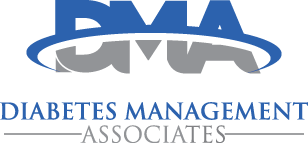Medications are very important to help with various problems. For many, taking medications is a daily part of life and can become so routine that caution is no longer considered. But did you know that medications are one of the leading causes of death in this country?
America’s Health Rankings has been published for more than 30 years by the United Health Foundation. It assesses the nation’s health and provides state-by-state data-driven insights of health, environment and socioeconomic issues. Drug deaths in this country have been rising since 2009. In 2019 alone, more than 70,000 Americans died from drug injury. Just one year later, in 2020 that number has increased to more than 93,000. Compare this to the 26,000 COVID deaths in 2020.
For an older person, risk of medication overdoses or misuse greatly increases as well as drug related deaths. Several factors can attribute to this.
- Older persons frequently take more medications than younger persons. The interaction of medications taken together is poorly studied.
- Older persons have more difficulty understanding the complexities of medications such as taking certain meds at certain times or on empty stomach.
- Older persons have more visual issues which can also attribute to unintentional drug injury.
- Older persons are more likely to have poor memory that can attribute to missed medications or unintentional overdosing.
Another consideration is over-the-counter medications (OTC) and supplements. While OTCs are mostly safe if taken as directed, serious interactions can occur if taken with certain prescription medications. Many people fail to report OTCs to their provider.
What can you do?
- Take EVERY medication in the original pharmacy container to EVERY visit you have with a healthcare provider. For refrigerated medications, take the box or label. Even if that provider did not prescribe all the medications, they can be another check system.
- Take EVERY OTC/supplement to EVERY visit you have with a healthcare provider.
- Do not add any OTC/supplements without first consulting with your healthcare provider.
- Have your healthcare provider periodically review your complete medication list and see if some are no longer needed or need to be adjusted.
- Medications, OTC and supplements should always be taken as directed by your healthcare provider.
- Use a daily medication dispenser.
- Consider services such as Pill Pack which is similar to a daily dispenser.
- Elicit the help of family or friends.
Drug related injury and death is needless and, in many circumstances can be avoided! Do your part of being informed and informing your healthcare provider.
Live Long, Live Healthy!
Dr. Julie Wood is a Nurse Practitioner and has been serving the Middle Tennessee area for more than 30 years, specializing in adults with obesity, prediabetes and diabetes. Office is located at 401 First Avenue, Mt. Pleasant, TN and statewide with telehealth. Dr. Wood can be reached at 931-325-5560, www.diabetesmgtassociates.com, info@diabetesmgtassociates.com.
Articles are meant to be informative and should never replace the advice of your health care provider.
5/22/22
